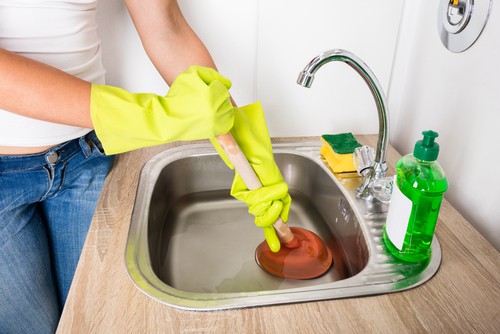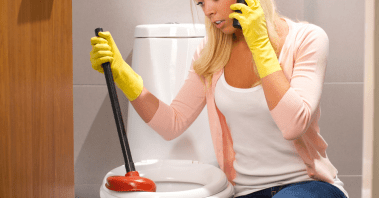Critical Fixes: How to Until A Plumber Arrives
Customer ReviewsDo you find yourself trying to find details around Expert Tips for Emergency Plumbing Repairs?

Pipes emergency situations can strike any time, creating stress and anxiety and potential damage to your home. Whether it's a burst pipe, a blocked drainpipe, or a leaky faucet, knowing how to manage the situation until an expert plumbing arrives can save you from further complications. This article provides essential emergency situation pipes pointers to aid you alleviate damages and gain back control during a plumbing crisis.
Turn Off the Water Supply
The first step in any plumbing emergency is to shut off the supply of water. For localized concerns, such as a dripping tap or bathroom, shut off the shutoff near the component. In the case of a major leak or ruptured pipeline, find your home's primary water shut-off valve and transform it off quickly. Recognizing the place of these valves beforehand can conserve useful time during an emergency.
Address Tiny Leakages with Short-term Solutions
Little leaks can quickly come to be considerable problems if left unchecked. Utilize these short-term fixes till expert help gets here:
While these fixes aren't irreversible, they can assist decrease water loss and damages.
Unclog Drains Securely
A clogged drainpipe can be a frustrating and unpleasant problem. Below's exactly how to tackle it:
If these techniques do not work, prevent using extreme pressure, as it may aggravate the clog.
Handle Overflowing Toilets
An overruning toilet can trigger prompt chaos. Right here's what you need to do:
Turn off Your Water Heater
In specific emergency situations, such as a ruptured pipeline, it's smart to shut down your hot water heater. This protects against overheating or damage to the system when water stops streaming. Shut off the power supply to the hot water heater (electrical or gas) and allow it cool off to prevent prospective risks.
Briefly Quit a Ruptured Pipeline
A ruptured pipeline can result in considerable water damage in minutes. To mitigate the issue:
Call a specialist plumbing technician instantly to address the trouble completely.
Manage Frozen Pipeline Carefully
In cooler environments, frozen pipes are an usual emergency situation. If you believe an icy pipeline:
Prevent More Damages
Taking quick action to decrease damages can save you time and money in the future. Below's exactly how:
. Have an Emergency Pipes Set
Prepare a standard pipes emergency package to deal with minor problems efficiently. Your package ought to consist of:
Having these tools on hand can make a considerable difference in your capacity to manage emergency situations.
Know When to Call a Professional.
While quick fixes can aid temporarily, particular plumbing concerns require prompt professional focus. Call a plumbing if:.
Quickly speaking to a professional makes sure the concern is dealt with appropriately and protects against further problems.
Final thought.
Pipes emergency situations can be overwhelming, but with the best understanding and devices, you can take care of the situation efficiently up until assistance gets here. By switching off the water, resolving tiny leakages, and using temporary fixes, you can reduce damage and keep your home safe. Keep in mind, these ideas are temporary services; always seek advice from an accredited plumbing technician to take care of the origin of the trouble. Prep work and fast thinking are your finest allies in any type of pipes emergency.
8 Helpful Tips for Managing Plumbing Emergencies at Home
If your plumbing system hasn’t failed once, wait for it because almost everyone has a story to tell. Sometimes, it could be simple emergencies such as a leaking pipe, a blocked cistern, or even a big burst pipe. In situations like this, you need to have some handy tips to save you some money and from possible damages.
Take care of minor issues early.
Sometimes, you could have avoided an emergency by taking proactive measures while it was still early. Some major plumbing emergencies can be a result of an ignored minor issue. We recommend that you have items like plumbing tapes and other related items. A plumbing tape can allow you to manage minor leaks before the plumber arrives.
Cut off the water supply.
This tip is essential in almost any type of leakage problem. For problems like minor leakages in the toilet or kitchen, turn off the supply that takes water to the affected pipes. If the leakage is a major pipe, you must shut off the supply valve to the entire building. This will help you avoid flooding your home and neighbors if you share a flat.
Know your plumbing system
Folks typically move into a new apartment without understanding the water supply around the building. This can prove disastrous if a water emergency arises and the plumber is far away. The previous tip will prove useless if you don’t practice this one. More importantly, know where your water shut-off valve is located – you’ll need that knowledge to prevent potential home floods.
Have some common handy tools
There are lots of plumbing emergencies that you can handle without hiring a plumber. That’s why you must keep some tools available always. Some tools that you can use to fix simple plumbing emergencies easily include plumbing tapes, screwdrivers, thread seal tapes, plungers, pliers, tape measures, and rubber gloves.
Insulate your pipes from cold
You’ll save yourself from many plumbing expenses if you protect your water pipes from the cold. This is because of the harmful effects that cold weather can have on your pipes. During winter, your pipes can burst from being overly expected to freezing temperatures. So, make sure insulators are there to keep the pipes working correctly.
Avoid practices that will clog your toilet.
Many people indulge in practices that can damage the plumbing system of the entire building. One of these is when they use their toilet to dispose-off garbage. They flush all kinds of things, such as paper towels, bandages, hairs, female sanitary products, etc., down the toilet. This will block your toilet in the long run, incurring unnecessary expenditures. Dump such waste in the trash instead.
Check your dials regularly.
Sometimes, there could be leakages in your home without noticing them in time. So, constantly monitor your water meter dial. If the dial is reading when there is nobody using water, this is an indicator that there is leaking. Check for leaks immediately. Call a plumber as soon as possible if you can’t find any.
https://www.constructionplacements.com/8-helpful-tips-for-managing-plumbing-emergencies-at-home/

As an enthusiastic person who reads about What to Do While Waiting for an Emergency Plumber, I thought sharing that short article was important. Loved our write up? Please quickly share it. Let someone else find it. Thanks a bunch for being here. Come back soon.
Schedule Your Job Now